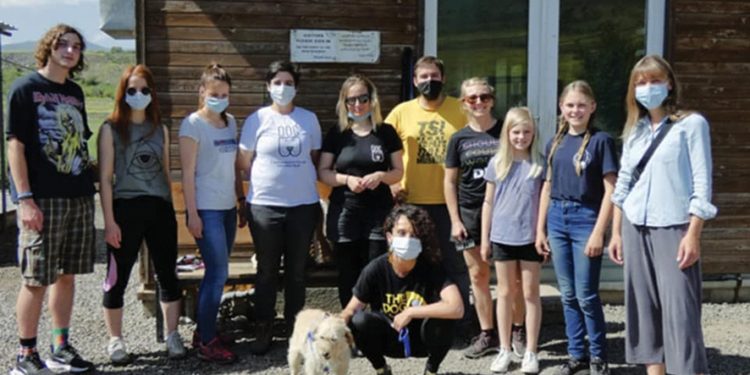For Sara Anna Modzmanashvili-Kemecsei, working with animals, particularly those in need, is not just a passion: it is a way of life. Born in a small Hungarian town, she grew up surrounded by animals, her home always filled with the presence of dogs and cats. “Nature and animals were always part of my life,” she recalls. Though her degree is in social sciences, Sara’s innate love for animals guided her to a path where she could make a difference in their lives.
Her journey took a pivotal turn when she moved to Georgia with her family. While searching for a dog to adopt for her children, Sara visited several shelters across the country. Though she briefly volunteered at all of them, it was Dog Organization Georgia (DOG) that captured her heart. “The level of care towards its residents made me want to volunteer long-term,” she explains. What began as casual involvement soon grew into a deep commitment. Over time, Sara transitioned from being a foster parent and volunteer to becoming one of DOG’s leaders, alongside her friend and fellow advocate, Maite Iniesta.
Sara’s leadership became indispensable after 2016, when DOG’s founder, Fiona Coxshall, relocated abroad. Together with Maite, Sara stepped up to ensure that DOG’s vital mission—rescuing, rehabilitating, and rehoming Georgia’s stray and abandoned animals—continued.
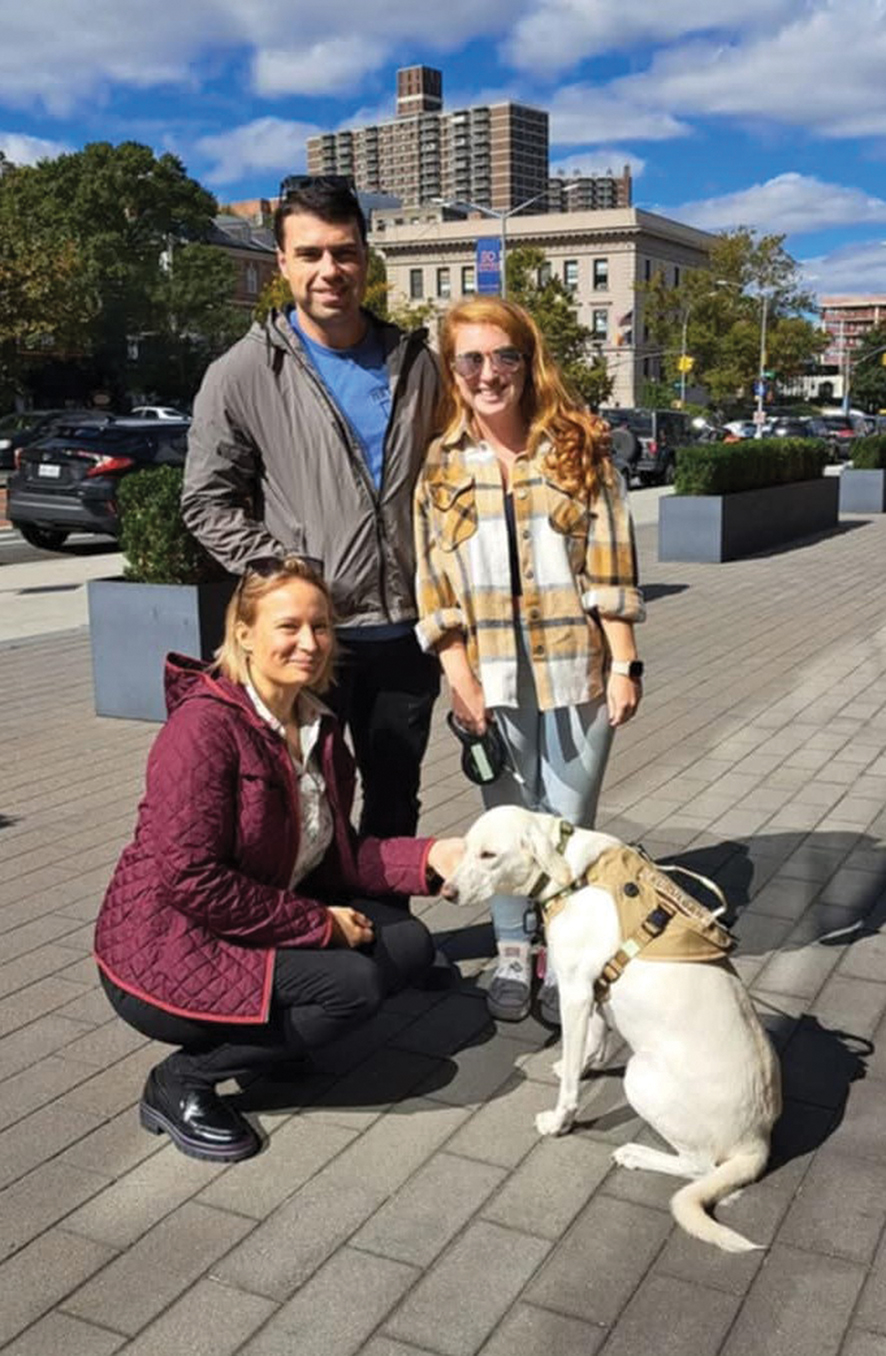
A Day in the Life of an Animal Advocate
Managing the welfare of countless animals is no small task. For Sara, every day begins early and ends late. No two days are alike; emergencies can disrupt even the most carefully laid plans. “When you work with animals, things can change immediately,” she notes. Sara often finds herself structuring her social and private life around the needs of the animals she cares for. For example, if a dog in her care requires medical treatment every few hours, that becomes her top priority.
The work is physically and emotionally demanding, but Sara’s motivation stems from the small successes she witnesses daily. She recounts how building relationships with adoptive families and staying in touch with them helps her stay inspired. “We receive updates, photos, and news about the dogs we’ve helped, and seeing them thrive gives me extra motivation when I need it.”
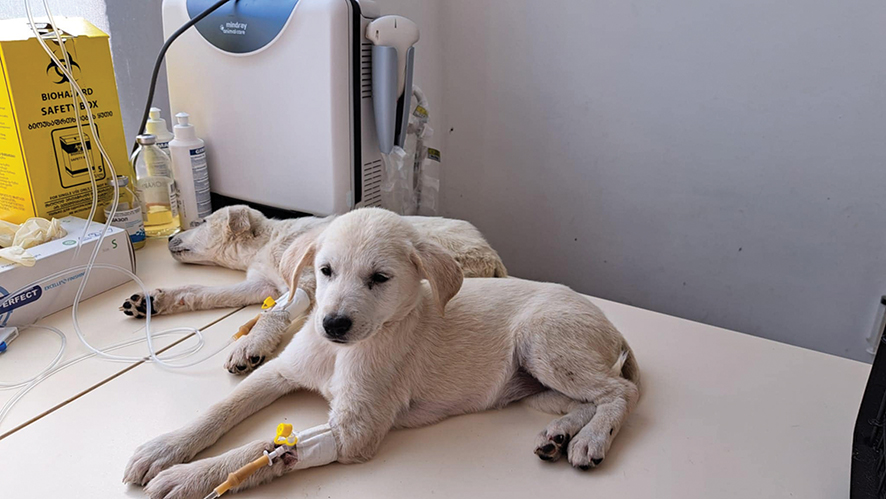
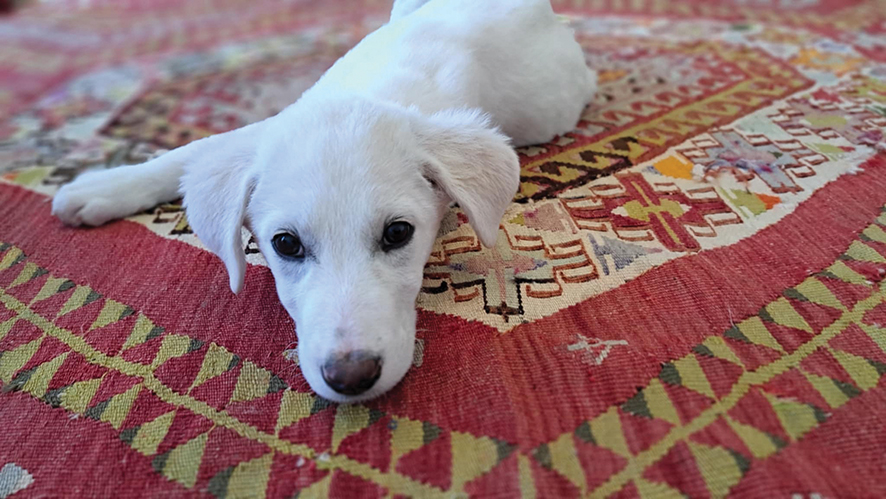
Heartwarming Success Stories
Among the many animals Sara has helped, certain cases stand out. One of her favorite projects involves reuniting US Marines stationed in Georgia with the stray dogs they cared for during their deployments. Through DOG’s partnership with SPCA International, these dogs find loving homes overseas. One particularly memorable case was Peggy, a stray puppy from the Rustavi Training Base, who now lives in New York City. Peggy has even become an honorary FDNY dog, donning a special vest at her new home in a firehouse near the World Trade Center memorial.
Another remarkable story involves a small puppy found paralyzed by the roadside in Kakheti during one of DOG’s community outreach programs. Left in scorching heat without access to water, the pup’s survival seemed unlikely. Yet after months of surgery, rehabilitation, and care, he made a full recovery. Today, he lives happily with a family in Tbilisi, his once-tragic life transformed. “Seeing these transformations keeps us going,” Sara says.
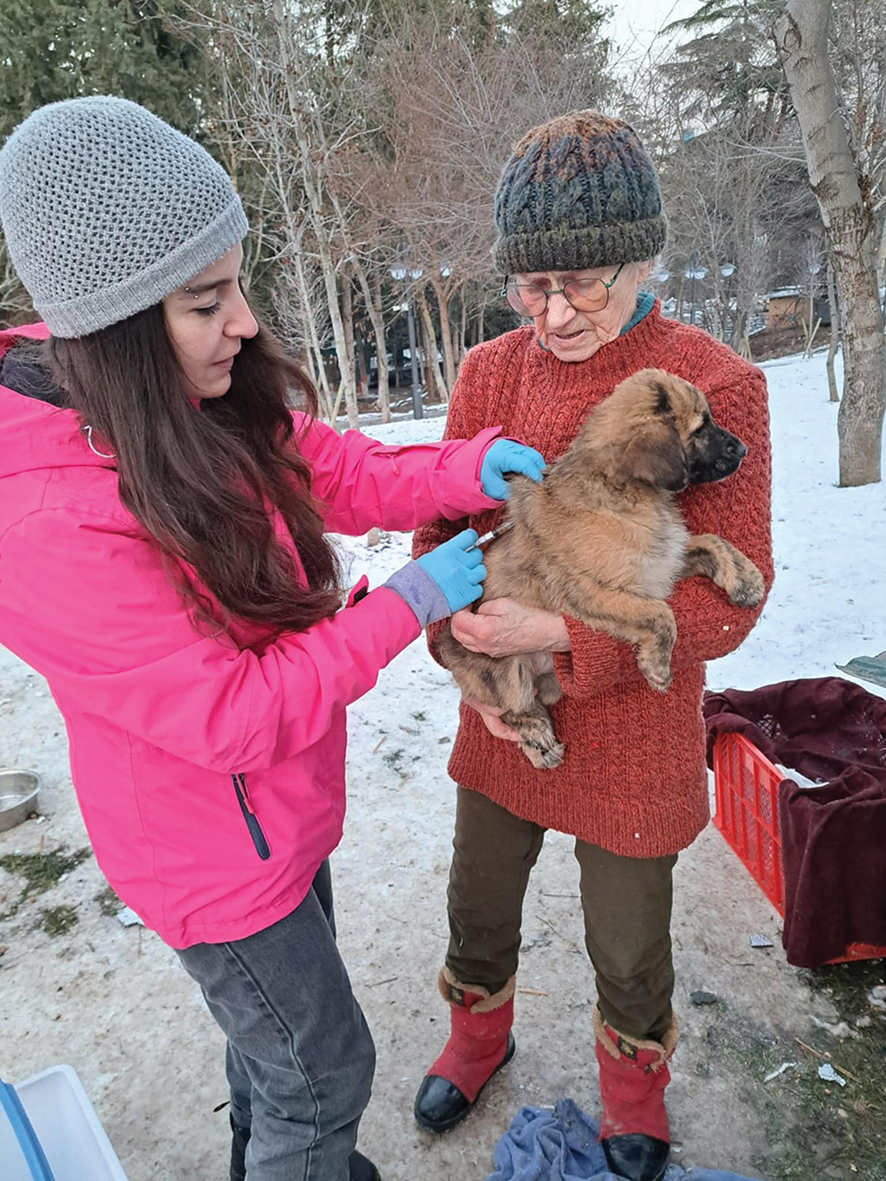
Challenges in Animal Welfare
Despite the rewarding aspects of her work, Sara is candid about the challenges she and DOG face, particularly the lack of government support. “There is no comprehensive policy to address the problem of stray animals in Georgia,” she explains. While there are localized efforts, they are fragmented and lack enforcement.
Sara believes that any successful strategy must include three key components: regulations, enforcement, and accessible services. For instance, it is unreasonable to expect families in rural areas, living on limited incomes, to neuter and vaccinate their pets when affordable services are unavailable. “It’s difficult to blame people when they are left alone without support,” she notes.
One of Sara’s primary concerns is the unregulated breeding of dogs. She emphasizes the need for stricter laws and societal awareness to combat the trend of purchasing purebred dogs from backyard breeders. Many of these dogs, such as huskies and other high-maintenance breeds, end up abandoned because their owners cannot meet their needs. “Instead of buying a purebred dog as a status symbol, people would be better off adopting a mixed-breed dog, which often has fewer health issues and is easier to handle,” she argues.
Resilience amid Adversity
In addition to these systemic challenges, Sara and DOG have had to contend with political obstacles. The controversial foreign agent law proposed in Georgia threatens the survival of NGOs like DOG, which rely heavily on international funding. “It’s immoral to stigmatize organizations that do the job the government is paid to do,” Sara states. The law not only undermines the work of animal welfare organizations but also jeopardizes other groups providing critical support to vulnerable populations.
Without foreign donations, Sara warns, DOG’s operations could come to a halt, and the government has shown little willingness to step in. “If we’re stigmatized and cut off from funding, the problems we address will only escalate,” she says.
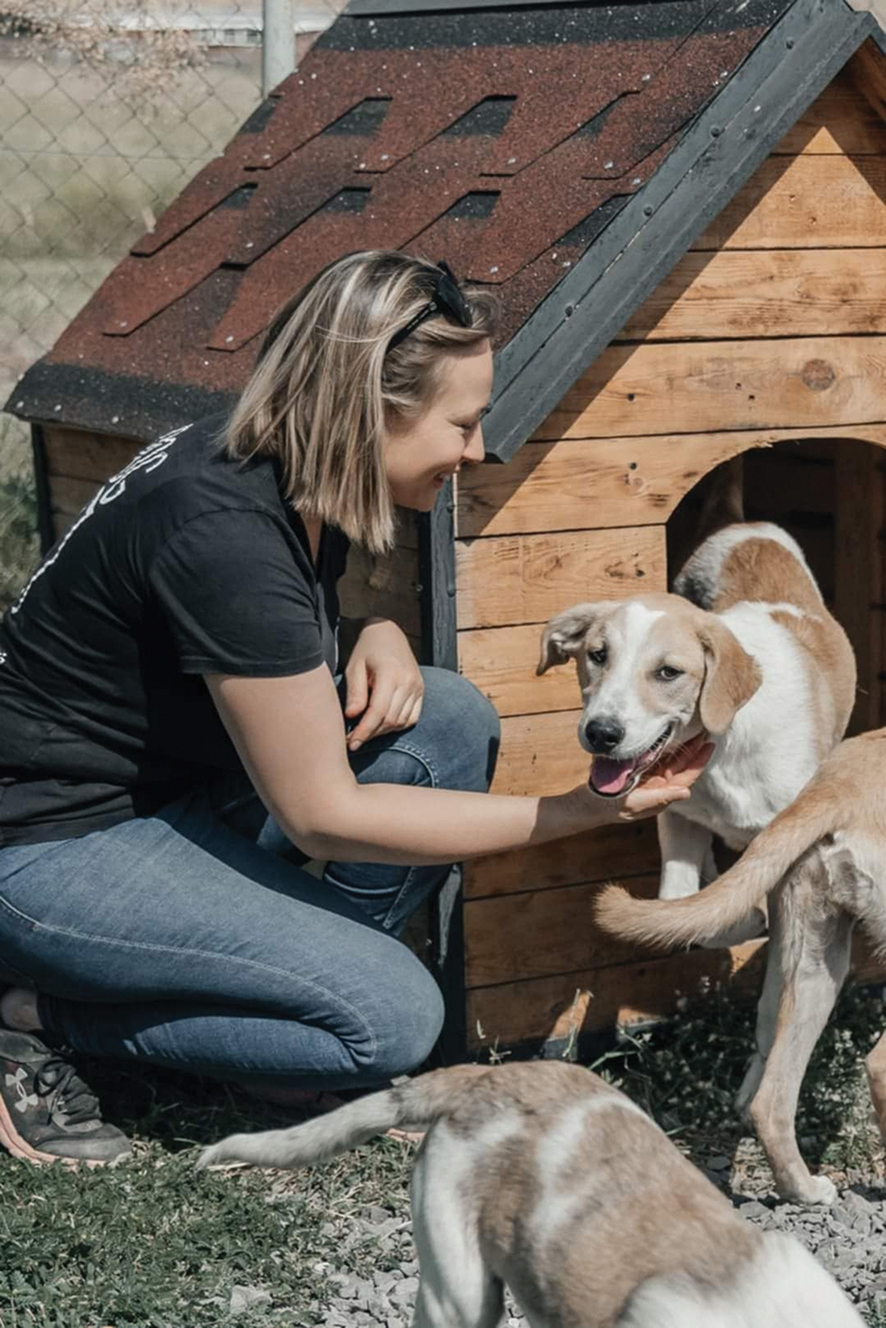
A Vision for the Future
Despite these obstacles, Sara remains optimistic about the future. Her goals for DOG are ambitious yet grounded in the belief that change is possible. She hopes to expand their reach and help even more animals in need. On a personal level, Sara’s mission is simple: to ensure that every dog in her care recovers and finds a loving home. “Dog by dog, one day at a time,” she says.
Her message to society is one of empowerment: “The only way to create a better world for our children is by getting involved,” she notes. She believes that activism, whether in animal welfare or other causes, fosters a sense of responsibility and community. “We’ve seen so many young people start helping street animals and then become active citizens in other areas of their lives. It shows that change is possible when people take action.”
Building a Better Society
For Sara, the journey to creating a better society begins with compassion. She encourages people to support local organizations and to view problems not as insurmountable challenges but as opportunities for growth and improvement. Whether through adopting a stray animal, volunteering time, or advocating for systemic change, every small action contributes to a larger, more compassionate world.
Through her work with DOG, Sara Anna Modzmanashvili-Kemecsei exemplifies what it means to be a changemaker. Her story is a testament to the power of perseverance, empathy, and the belief that even the smallest steps can lead to extraordinary transformations.
***
By Kesaria Katcharava

